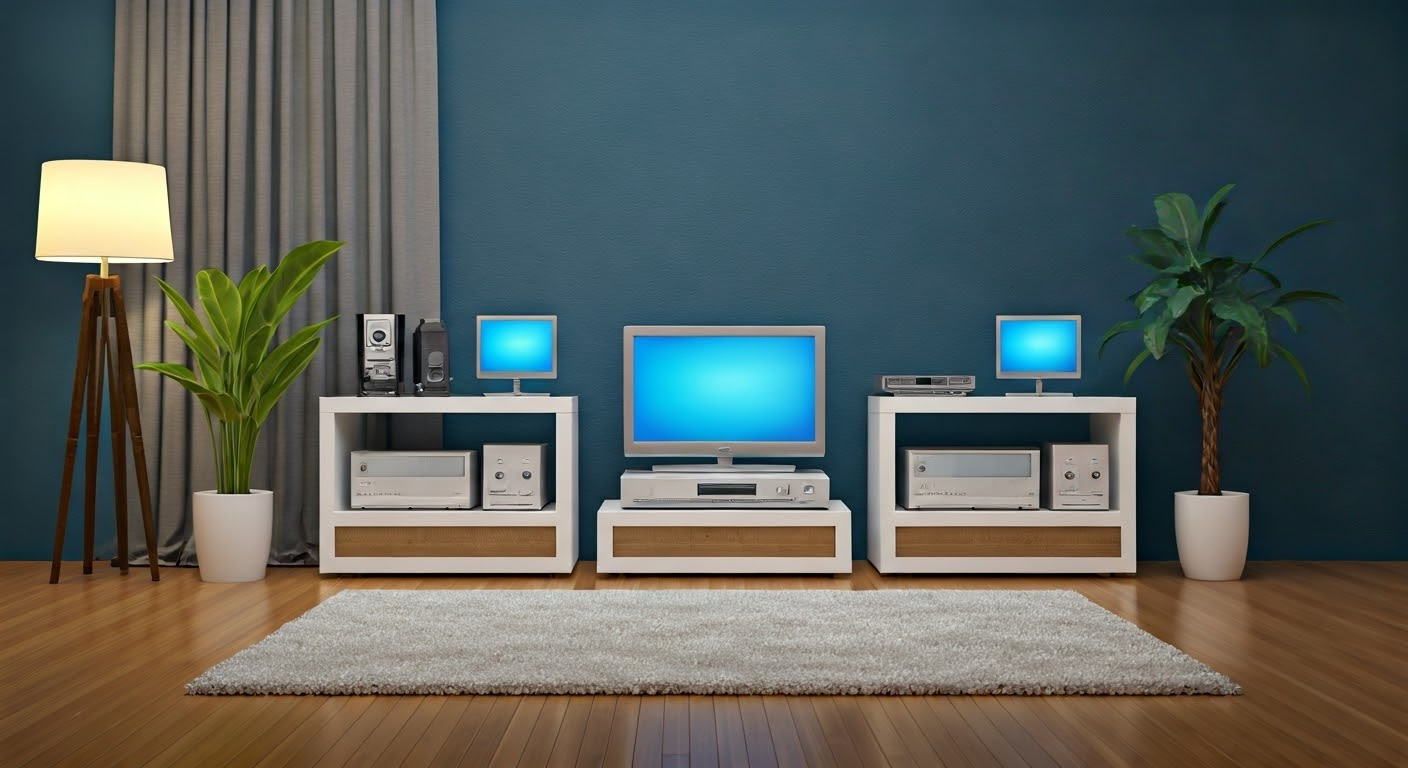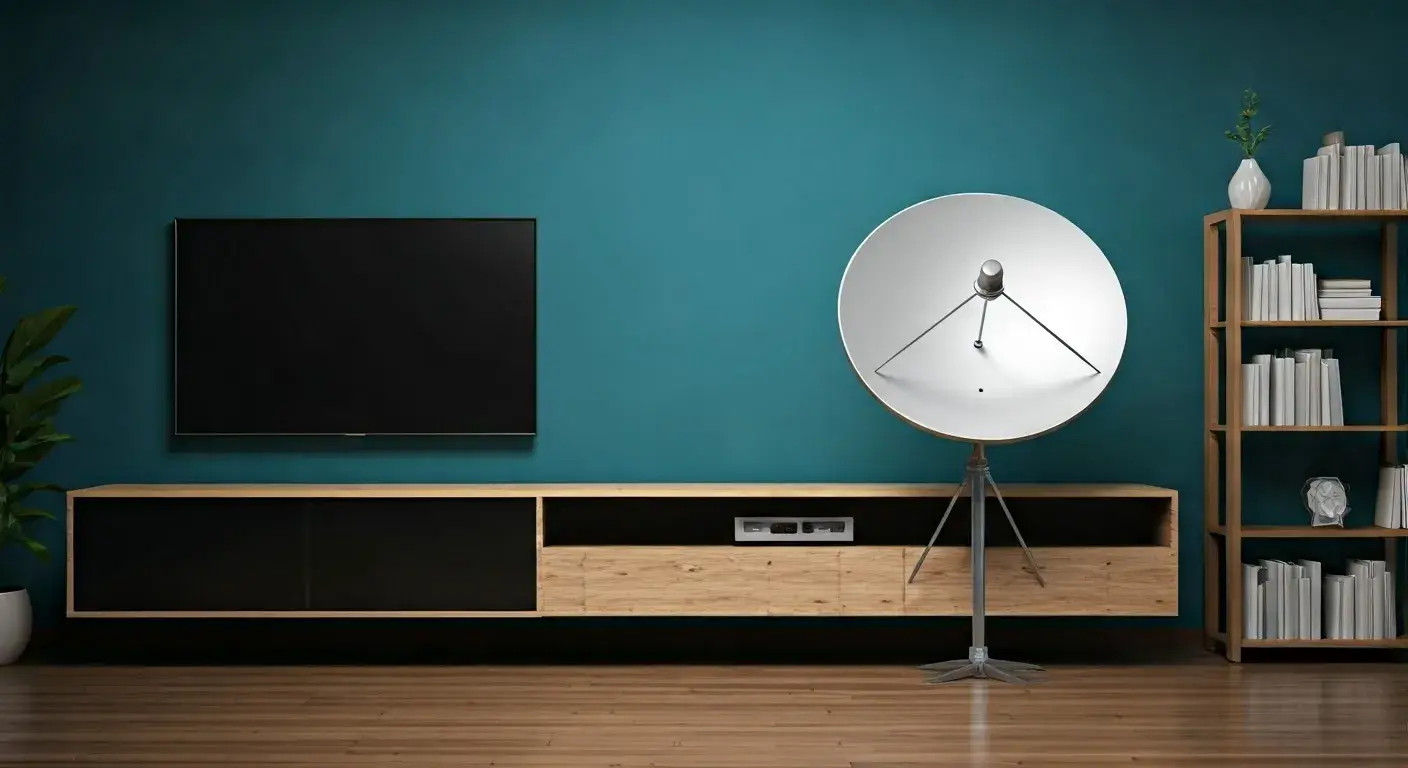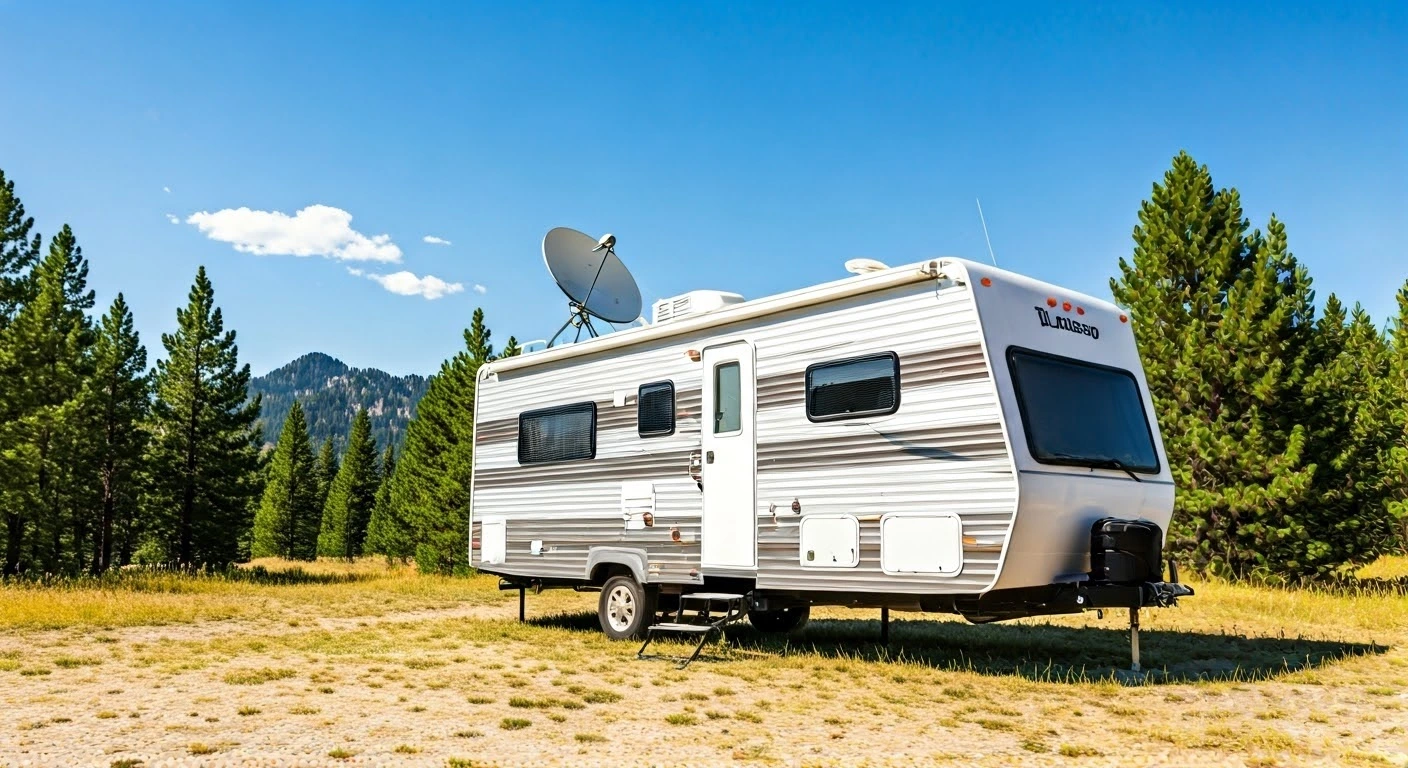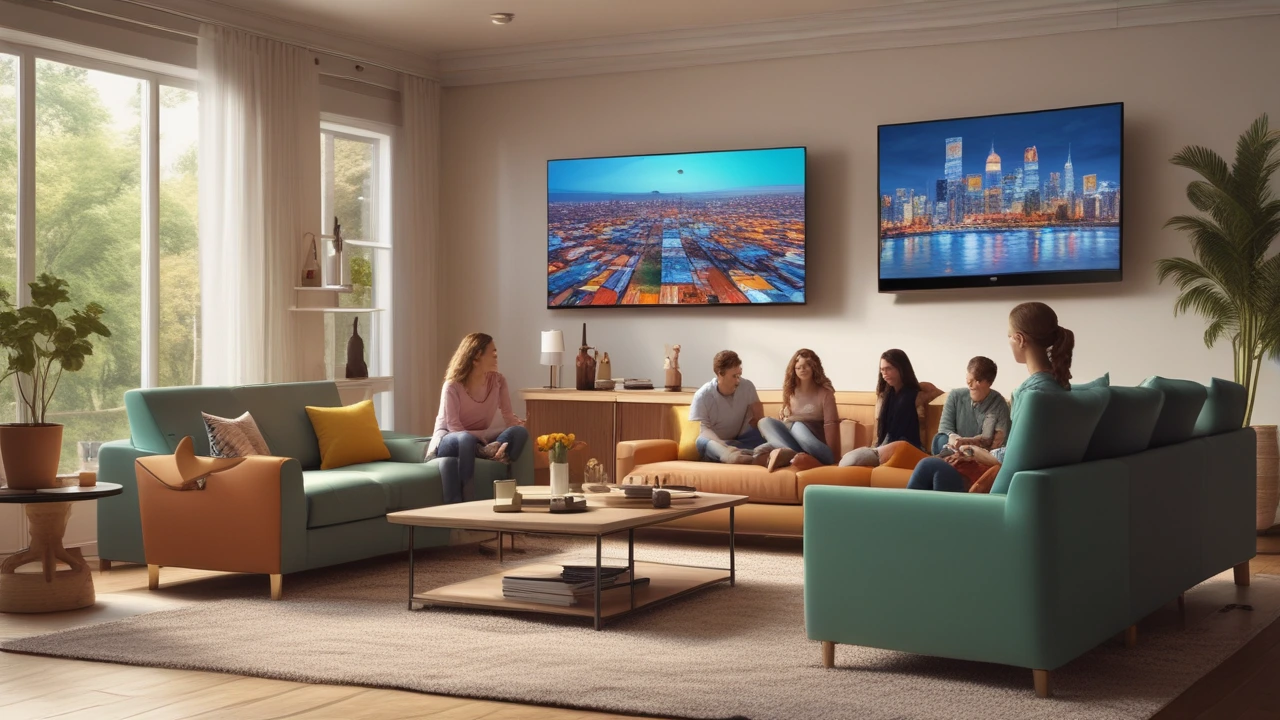
In the world of TV, picking between cable TV and satellite TV can be tough. With many people using streaming services now, these traditional TV service options still have value. This guide will help you understand each service better. It will show you the good and bad sides of both options and when to use them. By the finish, you will be ready to choose what fits your entertainment needs and wants best.
Understanding the Basics of Cable and Satellite TV
Before we get into the details, let's understand how cable and satellite TV operate. Both provide television programming straight to your TV, but they do it in different ways. These differences affect how available they are, how reliable they can be, and the overall experience of watching TV. Knowing these basic differences is important to help you make a smart choice.
What is Cable TV and How Does it Work?
Cable TV brings live TV signals to your home using a system of coaxial cables. These cables are usually buried underground or placed on utility poles. They create the main part of the cable network. Cable companies own and look after this system to make sure signals reach each home.
When you sign up for a Cable TV package, a technician will connect your home to the network. This may involve setting up a cable outlet. Once you’re connected, the signal runs through the cables to a cable box or CableCARD. These devices turn the signal into pictures and sound so you can watch the channels in your selected package.
What is Satellite TV and How Does it Work?
Unlike Cable TV, Satellite TV Service depends on satellites that orbit the Earth These satellites send signals to a satellite dish at your home. To get a good satellite TV service, you need a clear view of the southern sky. This helps you receive signals without interruption.
The dish picks up the signals and sends them to a receiver connected to your TV. The receiver then decodes the signals so you can watch the channels. However, because this service relies on satellite signals, weather conditions can sometimes affect signal reliability with satellite TV.
Comparing Cable and Satellite TV Services
Now that we have gone over the basics, let's look at how Cable TV and Satellite TV stack up in several important areas. Knowing these differences will help you choose the service that fits your needs and priorities the best. We will check with TV providers and plans for coverage and total cost. This will help you in making the right choice.
Service Availability Across the United States
A key point to think about is if each service is available in your area. Cable TV needs physical wires, so it only works where cable networks are set up. It is easy to find in cities and towns. But in rural areas, it may not be available or could be limited because building the needed wires is expensive.
In contrast, satellite TV has better coverage across the US. It just needs a clear view of the southern sky. This means satellite TV can reach very remote places. Still, keep in mind that tall buildings or thick trees can block the signal. Before you decide, check if your zip code is covered by both TV providers.
Channel Selection and Variety
Both cable and satellite TV services have many channels, but they are different in some ways.
Here are some important differences:
- Channel Selection: Satellite TV usually has a bigger selection. It offers more national and speciality channels.
- Local Channels: Cable TV often has more local channels. This includes regional sports networks and local news.
- International Channels: Satellite providers often give you more options for international channels. This allows for different language choices.
In the end, the right choice is based on what you watch most. If you want popular channels and a lot of options, satellite TV might be better for you. But if you like local shows and fewer channels, cable TV could be the right fit.
The Cost Differences Between Cable and Satellite TV
Cost is an important factor for many people when they pick a television service. Cable and satellite TV both need a subscription, but they have different prices. When you look at the costs, it is important to check both the setup fees and the monthly subscription fees. By doing this, you can see which choice gives you better value based on your budget and how you watch TV.
Initial Setup and Installation Fees
Setting up your TV service can come with some costs at the start. These costs can be quite different for cable TV and satellite TV.
Here’s an overview:
- Cable TV: The installation costs for cable TV are usually lower, especially if you already have cable wiring in your home. Some cable TV packages even offer free self-install options. If you need new wiring, though, the installation fees will go up.
- Satellite TV Installation: This process is often more complicated. You will need a trained technician to set up the satellite dish and connect the receiver. While some providers give free standard professional installation, you might face extra charges for more complex setups or custom jobs.
Monthly Subscription Costs
While setting up costs a one-time payment, the monthly subscription fees happen every month. Cable and satellite providers offer different packages that have various channels and features, which affects the cost.
Here’s a comparison:
- Cable Provider: Monthly fees for cable TV can change. You can choose from simple packages to bigger ones. The total cost depends on your location, the package you pick, and any special offers.
- Satellite Providers: usually have price plans that are more similar from place to place. Their monthly costs can be a little higher than cable TV, especially for packages that include more channels.
In the end, you should look at the packages from both cable and satellite providers in your area to find the best deal.
Evaluating the Quality and Reliability
Choosing the best TV service is not just about price and how many channels you get. It's important to look at how reliable the service is and how good the viewing experience is. Things like signal reliability, picture quality, and sound quality are very important for your happiness with the service.
Signal Reliability During Adverse Weather Conditions
Weather can greatly affect how well your TV works, especially with cable and satellite TV.
Here’s a comparison:
- Signal Reliability: Cable TV usually has more reliable service because it uses wired connections. While bad weather can sometimes cause issues, they happen less often than with satellite TV.
- Bad Weather: Heavy rain, snow, or strong winds can interfere with satellite signals. This can lead to temporary service problems. Even with better technology today, bad weather is still a weak point for satellite TV.
For places that often deal with harsh weather, cable TV might provide a better and more consistent watching experience.
Picture and Sound Quality Comparison
Technological progress has made cable and satellite TV similar in picture quality and sound quality. Still, you might notice small differences.
Here’s a closer look:
- Picture Quality: Satellite TV is usually better at offering high-definition picture quality. This is especially true for channels that use 1080p or 4K resolution. This small edge comes from their ability to use more bandwidth.
- Sound Quality: Just like picture quality, sound quality relies on several things. These include the broadcaster, your audio system, and the TV package you choose. Both cable and satellite TV support surround sound formats. This means you can enjoy high-quality audio.
Even though there might be noticeable differences, the overall picture and sound quality depend a lot on the provider and your equipment.
Additional Features and Technology
To meet changing customer needs, both cable and satellite TV providers have added new services beyond regular TV channels. Features like DVR, on-demand content, and bundling options are now usual. These extra features bring more value to your subscription. Looking at these added benefits can help you decide which provider has the best entertainment options.
DVR and On-Demand Services
DVR and On-Demand services are now vital parts of watching TV. They offer users more flexibility and control.
Here’s how cable and satellite providers stack up:
- DVR Capabilities: Both cable and satellite providers offer DVR services. This lets users record shows to watch later. Some advanced DVRs can record multiple channels at once. They can also pause live TV and store many hours of content.
- On-Demand Services: Most providers have large libraries of on-demand content. These include movies, TV shows, and even live events. These services often connect with streaming service subscriptions, making it easier to access entertainment in one place.
When you pick a provider, check their DVR storage, how many channels you can record at once, and the range of their on-demand options.
Bundling Options with Internet and Phone Services
Cable providers often have great bundling options. You can combine your TV service with internet and phone services for a lower price. These bundles are convenient and can save you money compared to buying each service separately.
Here’s a closer look:
- Fastest Cable Internet: Many cable companies offer high-speed internet, including the fastest cable internet options like fibre optic connections. Bundling your internet with TV can help you streamline your bills and may give you a better deal.
- Internet Connection: Although satellite internet is getting better, cable internet usually provides more reliability and speed. This is especially true in places with a strong cable system. Bundling your TV and internet with a cable provider can give you a smooth experience.
Conclusion
In conclusion, it's important to know the differences between cable TV and satellite TV services. This helps you make the best choice for your needs and likes. Cost, availability, and extra features matter a lot. Also, look at signal reliability, picture quality, and bundled services to help decide. Your choice should fit your watching habits and budget. Whether you choose cable TV or satellite TV, thinking about these points will give you a better viewing experience just for you. If you have more questions about cable or satellite TV services, check our FAQ section for more information.





